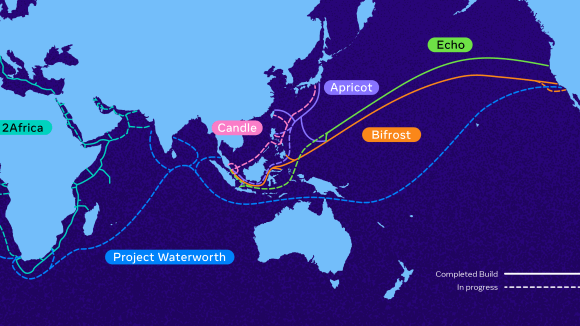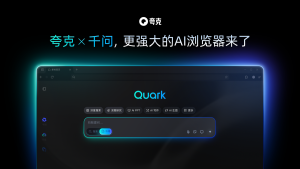Meta AI just dropped a bombshell in the compression world that might finally break the decade-long stranglehold of generic compressors like Zstandard and gzip. OpenZL isn’t just another incremental improvement, it’s a fundamental rethink of how we approach data compression, and the implications are staggering for anyone dealing with large-scale data processing.
The Compression Plateau We’ve Been Stuck On
For years, the compression landscape has followed a predictable pattern: generic algorithms that treat all data as byte soup. Zstandard’s breakthrough in 2016 was delivering better ratios at higher speeds, but it still operated in the same paradigm. The dirty secret of compression research? Most gains in the last decade have come at “great cost to resource utilization and processing throughput”, as Meta’s team notes in their whitepaper.
The real compression magic happens when you understand your data’s structure. Specialized compressors for specific formats consistently outperform generic ones, but they come with an operational nightmare: every new format means another compressor to deploy, audit, patch, and maintain. This fragmentation problem has kept most organizations stuck with one-size-fits-all solutions.
How OpenZL’s Graph Model Changes Everything
OpenZL’s core innovation is what they call the “graph model” of compression. Instead of treating compression as a monolithic algorithm, they express it as a directed acyclic graph of modular codecs. Each compressed file embeds a self-describing graph so a single universal decoder can always reconstruct the data.
Think of it this way: instead of trying to compress a CSV file as one big blob, OpenZL might separate headers from data, extract individual columns, apply delta encoding to sorted fields, tokenize low-cardinality values, and then compress each resulting stream with its optimal strategy. The system automatically learns these strategies through an offline trainer that analyzes your data’s structure.
The results speak for themselves. On the SAO star catalog dataset, OpenZL achieved a 2.06x compression ratio compared to Zstandard’s 1.31x and xz’s 1.64x, while maintaining compression speeds of 340 MB/s and decompression at 1200 MB/s. That’s not just better compression, it’s better compression at higher speeds.
The Universal Decoder: OpenZL’s Killer Feature
What makes OpenZL truly revolutionary isn’t just the compression ratios, it’s the operational model. The framework decouples compressor evolution from reader rollouts through its universal decoder. You can keep improving compression strategies while maintaining backward compatibility with a single binary.
This addresses the biggest pain point of specialized compression: deployment complexity. As Meta explains in their engineering blog, “One audited surface, fleet-wide improvements, operational clarity, and continuous training” become possible with this approach.
The implications are massive for data-intensive applications:
– AI workloads: Training data and model weights often have predictable structures
– Time-series data: Financial data, IoT streams, and monitoring metrics
– Columnar formats: Parquet, Arrow, and other analytical data formats
– Database storage: Both row-oriented and column-oriented database engines
Where OpenZL Actually Falls Short (And That’s Okay)
The framework isn’t magic. When there’s no structure to exploit, pure text documents like enwik or dickens, OpenZL gracefully falls back to Zstandard compression. The team is transparent about this limitation: format awareness only helps when there’s format to be aware of.
The current Simple Data Description Language (SDDL) is also relatively limited, though the team plans to expand it. For complex formats today, you’d need to write custom parsers in C++ or Python. But crucially, this complexity stays on the compression side, the decompressor remains universal.
The Community Reaction: Skepticism and Excitement
The Hacker News discussion reveals both excitement and healthy skepticism. Developers immediately saw applications in genomic data compression, with one commenter noting they’d “really hard to resist spilling the beans about OpenZL” during recent discussions about compressing genomic sequence data.
Others raised valid concerns about indexing and streaming support, features the team acknowledges are in development. The comparison to existing specialized compressors like FLAC for audio shows OpenZL still has ground to cover in certain domains, but the framework’s extensibility suggests these gaps will close quickly.
What This Means for the Future of Data Storage
OpenZL represents a shift from compression as an algorithm to compression as a platform. The ability to automatically generate optimized compression strategies for arbitrary data structures could democratize high-performance compression beyond the handful of formats that justified specialized tools.
For database vendors, cloud providers, and anyone building data-intensive applications, OpenZL offers a path to significantly reduce storage costs without sacrificing performance. Meta’s internal deployments have shown “consistent improvements in size and/or speed, with development timelines reduced from months to days.”
The framework’s open-source nature means we’ll likely see rapid ecosystem development. Already, there’s discussion of integrating with existing format description tools like Kaitai and ImHex, potentially automating the process of generating compression strategies for new formats.
Should You Care?
If you’re working with structured data at scale, whether it’s AI training sets, analytical databases, or application-specific formats, OpenZL deserves your attention. The GitHub repository shows active development, and the BSD license makes it enterprise-friendly.
The framework won’t replace Zstandard for general-purpose compression tomorrow, but it creates a new category: compression platforms that adapt to your data rather than forcing your data to adapt to them. That distinction might seem subtle, but for organizations measuring storage costs in petabytes, it could translate to millions in savings.
Meta’s compression team has a track record of delivering industry-changing technology with Zstandard. With OpenZL, they’re not just iterating, they’re redefining what’s possible in data compression. The question isn’t whether format-aware compression will become mainstream, but how quickly the ecosystem will adopt this new paradigm.




